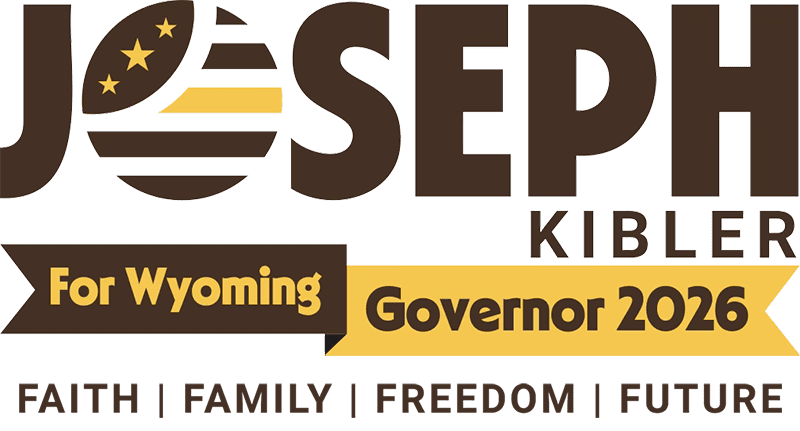Wyoming families should be free to buy local, sell local, and eat local without running a bureaucratic obstacle course. Our producers raise excellence; policy should get out of the way so communities can enjoy the fruits of their labor. In the Wyoming gubernatorial election 2026, I’m running on solutions that keep government light, clear, and honest—so markets, not mandates, do the heavy lifting.
Here’s the approach:
1) Direct-to-consumer clarity—so neighbors can trade with confidence
Wyoming’s Food Freedom Act already lets producers sell homemade foods directly to an informed end consumer at a farm, home, market, office—or any location agreed to within Wyoming. The law exempts qualifying homemade foods from state licensure and inspection, while keeping the transaction intrastate. Our job is to keep those rules easy to find and easy to follow—one concise guide, plain-English definitions, and printable labels. Casper Public Health+2Teton County+2
2) Eggs & dairy—visible, simple, intrastate
Wyoming clarified that eggs and dairy products may be sold under the Food Freedom framework (with intrastate limits). Rather than add new layers, we’ll keep the existing pathway clear for families and small shops through straightforward guidance and consistent communication. Wyoming Legislature+1
3) Meat pathways—use the lanes the law already provides
Wyoming operates state-inspected plants (sale allowed in-state), custom-exempt plants (processing for the owner only, not for resale), and wild game facilities. For custom-exempt, ownership must precede processing—which aligns with animal-share rules. No subsidies or carve-outs—just predictable timelines and checklists so everyone knows which lane they’re in. agriculture.wy.gov+1
4) Animal shares—trust anchored to statute
Wyoming expressly allows animal-share arrangements: ownership is established before slaughter, delivery is to the owner, a prominent “not inspected” warning accompanies the meat, and resale is not allowed. We’ll help folks use plain-English templates that match statute—nothing more. Justia Law
5) Poultry, rabbit, and fish—niche but useful lanes
Under current law and guidance, small-producer poultry sales (limited annual volume), domestic rabbit, and certain farm-raised fish have intrastate pathways. When producers understand these options, local choices expand without new bureaucracy. Casper Public Health
6) Local buyers, local goods—remove friction, don’t add layers
Schools, hospitals, and community institutions can source Wyoming products when practical and cost-competitive. The best lever is friction reduction—standard specs, simple bid forms, and calendars that help local producers plan deliveries. Keep it voluntary, transparent, and market-driven—no mandates, no program sprawl.
7) One page, not ten windows
Producers shouldn’t have to guess which office to call. A single public-facing page that consolidates existing WDA links—State Meat Program, CHS forms, Food Rule, and the Food Freedom Act PDF—respects people’s time while keeping government small. That’s organization, not expansion. agriculture.wy.gov+2agriculture.wy.gov+2
What this means for families
- More choice and clear information about what you buy, from whom, and at what quality.
- Shorter supply chains that can mean fresher food and better prices.
- Dollars that circulate locally, strengthening the places we call home.
What this means for producers
- Consistency instead of moving goalposts.
- Time you can plan around—because predictable, published processes beat special programs.
- A culture of freedom and responsibility that lets good work speak for itself.
This is the heart of my campaign for Wyoming governor 2026: solutions that honor Faith, Family, Freedom, and the Future. We help most by simplifying, telling the truth in plain English, and letting Wyoming people do what they do best. That’s how we Give Freedom Back—because real freedom doesn’t need permission.
FAQs
Q1: Does food freedom mean lowering safety?
No. It means clear, readable rules and honest labels so people can make informed choices. The Food Freedom Act exempts qualifying homemade foods from licensure/inspection while requiring an informed end consumer and intrastate transactions. Casper Public Health+1
Q2: Can custom-exempt meat be sold?
No. Custom-exempt is for the owner only. Sale of meat to the public requires state (in-state) or federal inspection (interstate). Animal-share owners receive their own meat with required notices; resale is prohibited. agriculture.wy.gov+2agriculture.wy.gov+2
Q3: Where can Food Freedom sales happen?
At a farm, ranch, farmers market, home, office—or any location agreed to between producer and informed end consumer, so long as it’s within Wyoming. Teton County
Q4: Are eggs and dairy really allowed under Food Freedom?
Yes—Wyoming updated law to explicitly allow eggs and dairy products under the Act (with intrastate limits). Wyoming Legislature
Q5: What about poultry, rabbit, or fish?
Wyoming law and guidance outline limited intrastate pathways (e.g., small-producer poultry, domestic rabbit, certain farm-raised fish). Producers should use the existing WDA guidance to choose the correct lane

